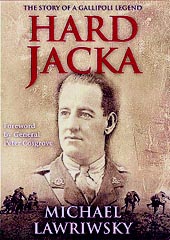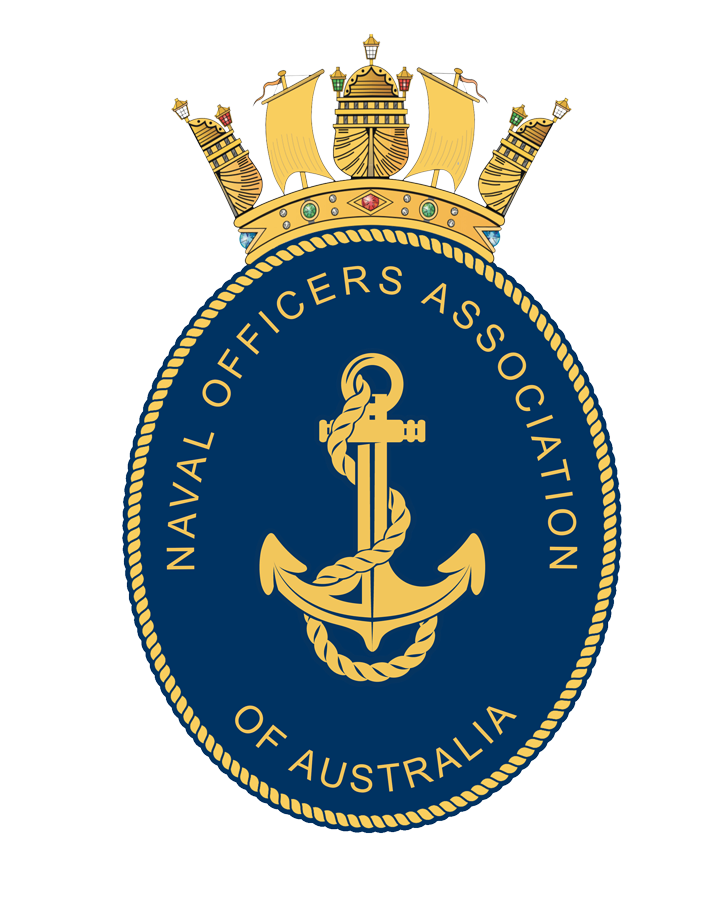Hard Jacka

Book review by Kevin Rickard
Lawriwsky, M. Hard Jacka: The story of a Gallipoli legend. Mira Books: Chatswood, 2007. 421 pp. 16 pp of plates, illustrations, maps.
General Peter Cosgrove, in his introduction to Michael Lawriwsky’s book, Hard Jacka, mentions that in the Australian Army’s pantheon of men there is none more inspirational, none more courageous than Captain Albert Jacka, VC, MC and Bar. In this sensitively crafted story of Jacka and his mates as well as the “heads”, we learn much, not only about the incredible bravery of Jacka and his many battle skills, but also of his clashes with authority.
The latter was at first with Lt Col Dare, the battalion commander who would not recommend Sgt Major Jacka for officer training, and later, clashes of Captain Jacka with Brigadier Charles Brand about tactical matters during fighting on the Somme. There is no doubt about the bravery of Jacka, but the details of these disputes provide insight into the character, fortitude and ambition of the man.
The fictionalised words attributed to Jacka and his contemporaries by Lawriwsky come from much meticulous research by the author, whilst their context and reality bring Jacka and his friends to life in the mind of the reader.
L/Cpl Jacka won his Victoria Cross at Courtney’s Post, Gallipoli, on 19 May 1915, in the darkness of those fatal trench systems in hand-to-hand fighting with the Turks. Jacka was assisted in his extraordinary exploits by Privates Poliness and De Araugo and Lt Crabbe. This VC was presented to Jacka by the then Prince of Wales during a luncheon at Buckingham Palace in 1916 with five other Australian recipients.
Poiziers
Many thought Lt Jacka’s extraordinary heroism on the ridge at Poziers in the Somme deserved a bar to his VC. His deeds there appear to have been understated by Dare and an MC was the result. At Poziers Jacka, leading the fifth platoon of the fourteenth battalion, withstood a ferocious German bombardment and, although seriously wounded, led a bayonet charge to capture the position. His brother, Bill Jacka thought he would not survive his wounds but he did so, at the Third London General Hospital, once more to return to the battles at the Somme.
At Bullecourt he won a bar to his MC, which was presented to him in the field by Sir William Birdwood in May 1917. At Polygon Wood in 1917 Capt. Jacka took effective command of the fourteenth battalion in the field, perhaps deserving another VC, but his role in that victory was unrewarded.
In between reading about the legendary and heroic deeds of Albert Jacka and also of his special attribute for the assessment of the enemy in conflict, we read also about the feelings, fears and reactions of many of Jacka’s friends, some of whom were to be tragically and heroically killed in the mindless slaughter. We read about such men as Capt. Ted Rule, Capt. ‘Lofty’ Williamson, Sgt ‘Curly’ Croft, Padre Andrew Gillison, Maj. Percy Black and Capt. Harry Murray. The story of his proven friend, Lt Harold Wanliss, of whom much was expected politically, carries much pathos. He fell in love and was betrothed to Jean Campbell while on leave in Scotland. Wanliss was later killed in action before he could wed Jean.
Mayor of St Kilda
Jacka survived the war, returned to Victoria, entered local politics and became the Mayor of St Kilda. He died in January 1932 at the Caulfield Military Hospital at the early age of 39 from complications of his many war wounds. “They shall not grow old as we that are left grow old; we will remember them.”
Hard Jacka is an extraordinary account of a great Australian hero, well written and a great, but sad, pleasure to read.
